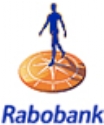 The world’s milk surplus should reduce over the first half of 2016 as production slackens in some regions, but the market recovery will be slow, according to Rabobank’s quarterly dairy report.
The world’s milk surplus should reduce over the first half of 2016 as production slackens in some regions, but the market recovery will be slow, according to Rabobank’s quarterly dairy report.
No recovery
Looking back at the dairy sector in Q4 2015, we see international dairy commodity prices stabilising, but failing to show any real signs of recovery. Demand-side conditions remained characterised by improved growth in the US and the EU. Many emerging markets, however, are showing weakness in demand. Aggregate demand does appear to be expanding, but not enough to deal with recent supply volumes at anything more than bargain prices. Production growth slowed considerably in export regions, yet this was not enough to avoid a small increase in exportable surplus, according to the Rabobank Global Dairy Quarterly Q4 2015.
World market
As anticipated, Q4 saw the world producing more milk than the market needed. While the stock overhang didn’t appear to worsen much, the need to clear product to less-high-paying regions of the world kept prices extremely low. Clearing this surplus in the face of weak buying from China and Russia has required pushing product into lower-paying markets. “Looking forward, Rabobank expects the brakes to be applied to milk production in export regions in the first half of 2016, although this will be less dramatic and less evenly spread than we had in mind a few months ago,” said Rabobank Dairy Senior Analyst Kevin Bellamy.
Dynamics
At the same time, lower pricing and some improvement in income growth will foster improved buying in deficit regions. These dynamics will see excess inventories gradually eroded as 1H 2016 progresses, with stocks approaching normal by around mid-year. “Pricing pressure will still build over our forecast period, but we delayed the timing of the recovery and envisage a somewhat weaker trajectory than we had a few months prior,” said Mr Bellamy. Together with modest growth in consumption within export regions, this will reduce exportable surpluses of new milk by 4 per cent in 1H 2016- tightening the market somewhat during this period.
Thanks to TheCattleSite News Desk

